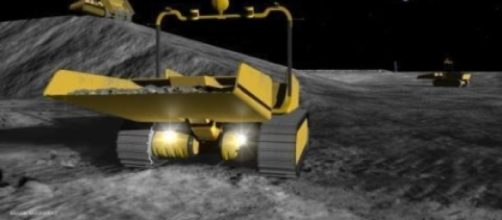Proving that interest in using lunar resources for the benefit of businesses and to further the exploration of space has become widespread, the Wall Street Journal is reporting that JAXA, the Japan Aerospace Exploration Agency, has signed a memorandum of understanding with a small startup firm called iSpace Inc., based in Tokyo. The purpose of the memo is to develop an enterprise, “for the mining, transport, and use of resources on the moon.”
Besides delving into lunar mining, iSpace handles the business operations for Team Hakuto, the Japanese entrant in the Google Lunar X Prize competition to land a rover on the lunar surface by the end of 2017.
The winner will move 500 meters and will return hires images and video from the lunar surface.
A number of businesses and government space agencies are interested in a return to the moon, not only for science and political prestige but to exploit its resources. The moon is a repository of platinum group metals and a substance called Helium 3, thought to be fuel for future fusion reactors. However, the moon also has billions of tons of water ice, primarily deposited at the poles in shadowed craters. Water can not only be used to sustain a lunar settlement but can be refined into rocket fuel. That fact will make the moon into a way station to the rest of the solar system. No longer will spacecraft have to carry all the fuel it needs from out of the steep gravity well of Earth.
Such an architecture would help to change the economics of space travel in profound ways.
ISpace will have competitors in the race for lunar resources. Two American companies and competitors in the Google Lunar X Prize, Moon Express, and Astrobotic, are also interested in mining the moon for profit. Even though the European Union, Russia, China, Japan, India, and, belatedly the United States with the coming of a new president, the new race to the moon is as much a private one as it is a government-centric contest. The winner or, more likely, winners will reap untold riches.

